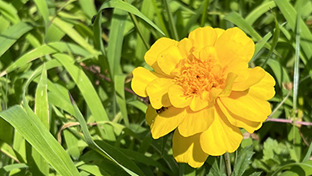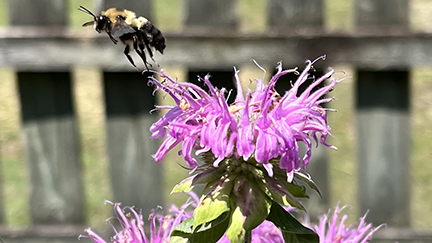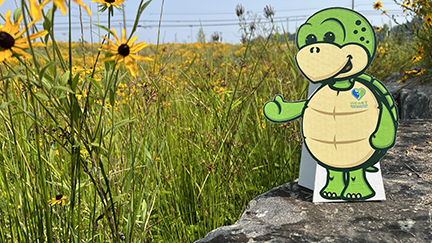Let’s Get Pollinating!

Looking for a way to spruce up your yard AND be a friend to the environment? Consider planting a pollinator garden contained within your landscaping! Pollinator gardens provide the materials necessary for not just some, but all our pollinators. This includes insects, bats, birds, moths, wasps and butterflies. These creatures transfer the pollen from one plant to the flower of another, creating more plants and a healthier environment. Pollination is crucial for the reproduction of plants and the stability of our ecosystems.

What does this have to do with us? Believe it or not, pollination is behind roughly one in every three bites we take, meaning our food chain relies on this process. Neglecting our pollinators affects OUR food supply! You aren’t just hurting insects and other creatures when you use pesticides and fertilizers, you’re hurting yourself.
Worried about garden maintenance? Don’t be! Native plants have adapted to the local climate and soil, meaning you can spend less time worrying about maintenance and more time watching nature’s magic happen. Diverse colors and species attract different kinds of pollinators that can spend all day dancing around the garden. The bees will be BUZZING with excitement!
Indulge in the joy and serenity that the beauty of flowers brings. Have questions about starting a contained pollinator garden? Call the Henrico County office of the Virginia Cooperative Extension at (804) 501-5160.
For more information, tune in to the podcast of Henrico’s Environmental Action Resource Team.



